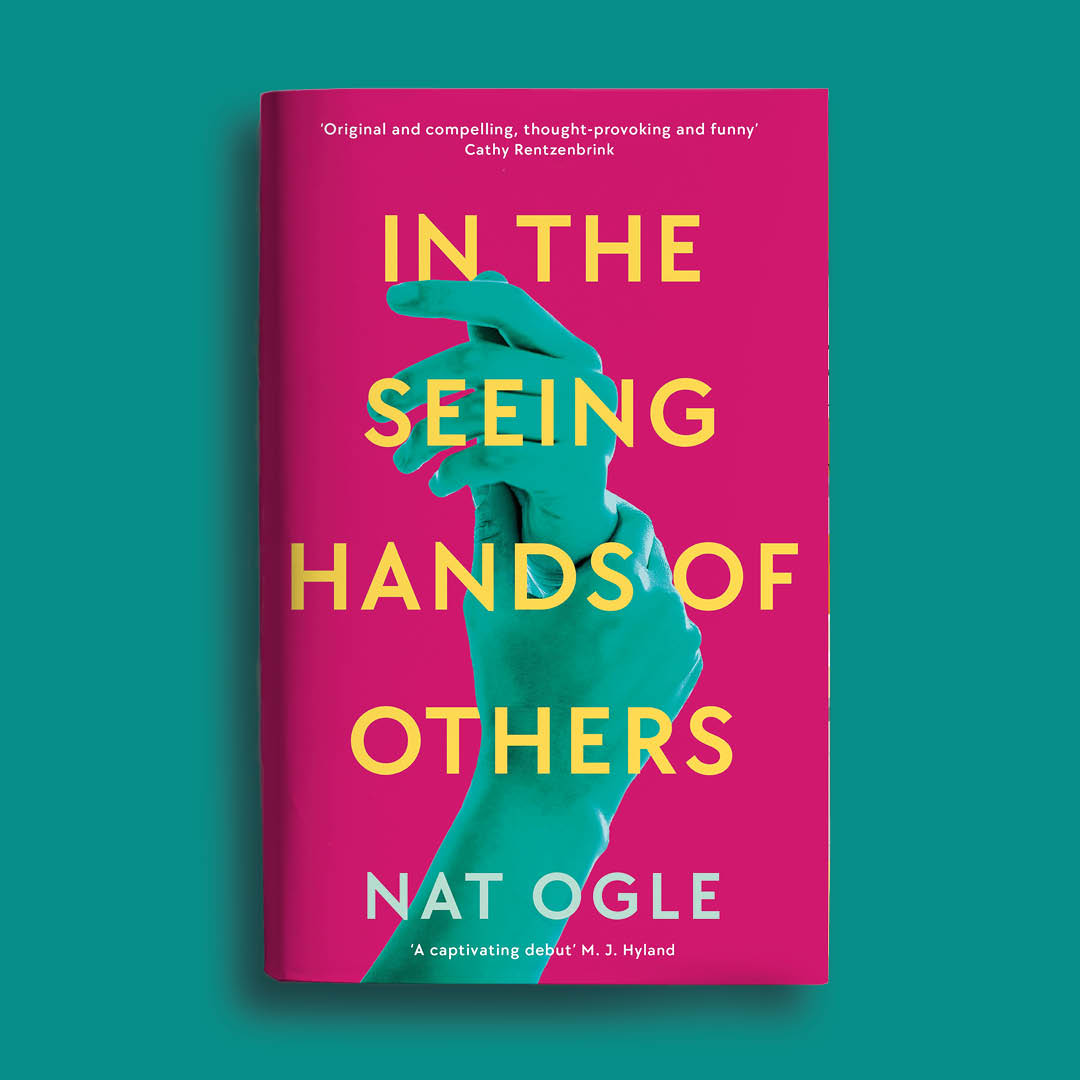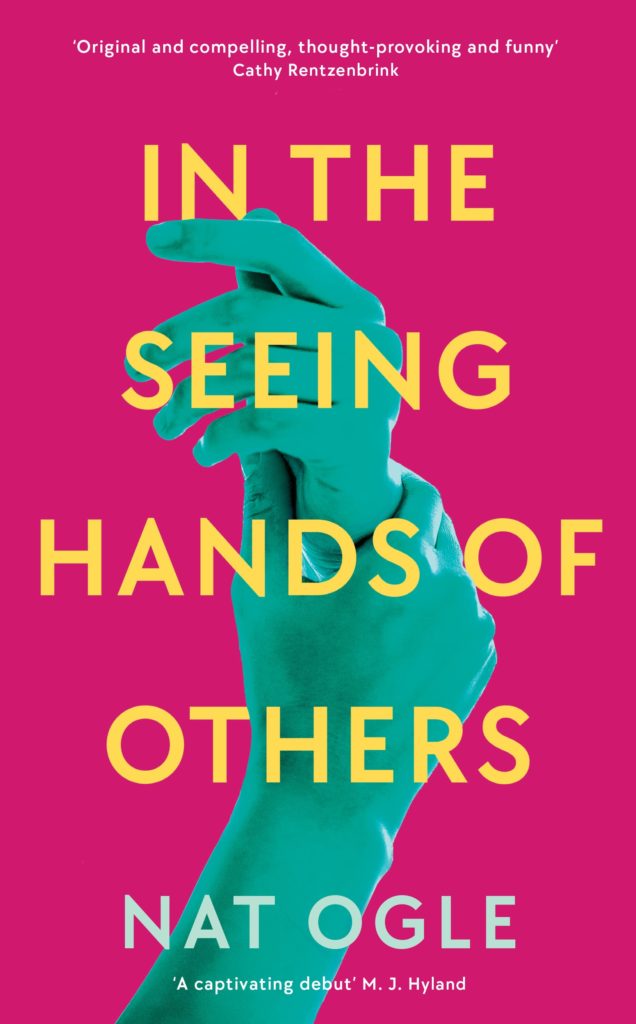
First they get married, then they get buried 
‘Sarai Walker has done it again … upends the Gothic ghost story with a fiery feminist zeal.’ Maria Semple, bestelling author of Where’d You Go Bernadette
A New York Times spring fiction pick for 2022
A GoodReads pick for May 2022
The reclusive Sylvia Wren, one of the most important American artists of the past century, has been running from her past for sixty years. Born Iris Chapel, of the Chapel munitions dynasty, second youngest of six sisters, she grew up in a palatial Victorian ‘Wedding Cake House’ in New England, neglected by her distant father and troubled, haunted mother.
The sisters longed to escape, but the only way out was marriage. Not long after the first Chapel sister walks down the aisle, she dies of mysterious causes, a tragedy that repeats with the second sister, leaving the rest to navigate the wreckage, with heart-wrenching consequences.
The Cherry Robbers is a wonderfully atmospheric, propulsive novel about sisterhood, mortality and forging one’s own path. Read an extract below.
Follow the author on Twitter: @quesaraisera
BELLFLOWER
1950
1.
Later, once the tragedies began to happen, one after another, the children in the village made up a rhyme about us.
The Chapel sisters:
first they get married
then they get buried
It didn’t help matters that we lived in an enormous Victorian house that looked like a wedding cake. If this were a novel, that detail would push the boundaries of believability, but that’s what our house looked like and I can’t change reality. Our home, on the west side of Bellflower Village, was a foremost example of the so-called wedding-cake style of architecture. It was one of the most photographed private residences in Connecticut; I’m sure even now you can find a picture of it in a textbook somewhere.
The house, with its cascading tiers and ornamental details, looked as if it were piped with white icing. The eyes are drawn first to the central tower, looming and Gothic, perched above the rest of the house and circled with tiny dormered windows. (You could imagine Rapunzel tossing her braid out of one of those windows.) Below the tower, the sloping mansard roof banded around the top of the house, punctuated by third-floor windows, which looked miniature from the ground. A prominent widow’s walk and balustrade marked the second floor, then there was the ground floor, with
its bay windows and portico, curlicues everywhere, and tall stalks of flowers ringing the base.
It looked like something out of a fairy tale, that’s what everyone said. If you could have sliced the exterior of this wedding-cake house with a knife, you would have found inside six maidens — Aster, Rosalind, Calla, Daphne, Iris, Hazel — each of whom were expected to become a bride one day. It was the only certainty in their lives.
Dearly beloved.
Dearly departed.
2.
Aster went first. As the oldest, she was used to going first, so I suppose it’s fitting this story begins with her walking down the aisle into what came after, what my mother called the “something terrible.” Someone had to go first, and since Aster was always the kindest and most responsible, I’m certain she would have seen it as her duty to light the way for her sisters even if she hadn’t been the oldest. As it was, she didn’t know she was the beginning of a story. Only the younger among us would live to see it through.
The summer before Aster’s wedding was the last normal summer. That’s when she met Matthew. As much as I don’t want to think about him and all that he wrought, there wouldn’t have been a wedding without him.
That summer in 1949 we went to Cape Cod as we did every year, staying in a suite of three rooms at the hotel on Terrapin Cove, which was located at the elbow of the Cape. These two weeks in July were the only time of the year my mother and sisters and I traveled away from the wedding cake. Our summer vacation was our annual airing out, when the dome placed over us was lifted and we, choosing from any number of metaphors, scurried away like ants, flitted into the breeze like butterflies, scattered on the wind like petals.
Since we were used to being confined at home, we didn’t scatter far and usually spent our days on the beach spread out on an assemblage of blankets. My father, never one for leisure, stayed at home during the week so he didn’t have to miss work. He joined us on weekends, but even when he joined us, he wasn’t really there, staying in the hotel for most of the day with his papers and ledgers. He’d come outside occasionally, looking out of place in his unfashionable brown suit, squinting into the sun, his hand a visor on his brow. He’d look for his wife and daughters, an island in the sand, and once he’d spotted us, he wouldn’t wave or smile, only turn and go back inside, secure in the knowledge we were there. I assumed he had this scheduled on his calendar: 11 a.m., family time.
My sisters and I sat with our mother on the beach in front of the hotel every day of our vacation, encircled by open parasols. Belinda (I’m going to refer to her by her name as much as possible; she was her own person, after all, not simply our mother) always held a parasol over her head at the beach, as she did when she worked in her garden at home. She wore white linen dresses, her long white hair (it had turned white in her mid-forties) looped into a bun like a Victorian’s with just enough at the sides to cover her missing earlobes. Like the wedding cake, she seemed to exist outside our time. She looked like the austere, melancholy women in Julia Margaret Cameron’s photography — wide downcast eyes, an oval face with prominent cheekbones and a subtly aquiline nose, and pale skin lined like a sheet of linen paper that had been lightly crinkled then smoothed back out.
She liked the beach; it calmed her in a way home never could. She didn’t swim, didn’t partake in sunbathing or any other merriment, but she liked walks. Mostly, she read books, which she stacked neatly next to her canvas chair, Emily Dickinson’s poetry or a novel by one of the Brontës. Her nostrils would flare as she read, inhaling the salty breeze. It was as close as she’d get to taking the waters.











































